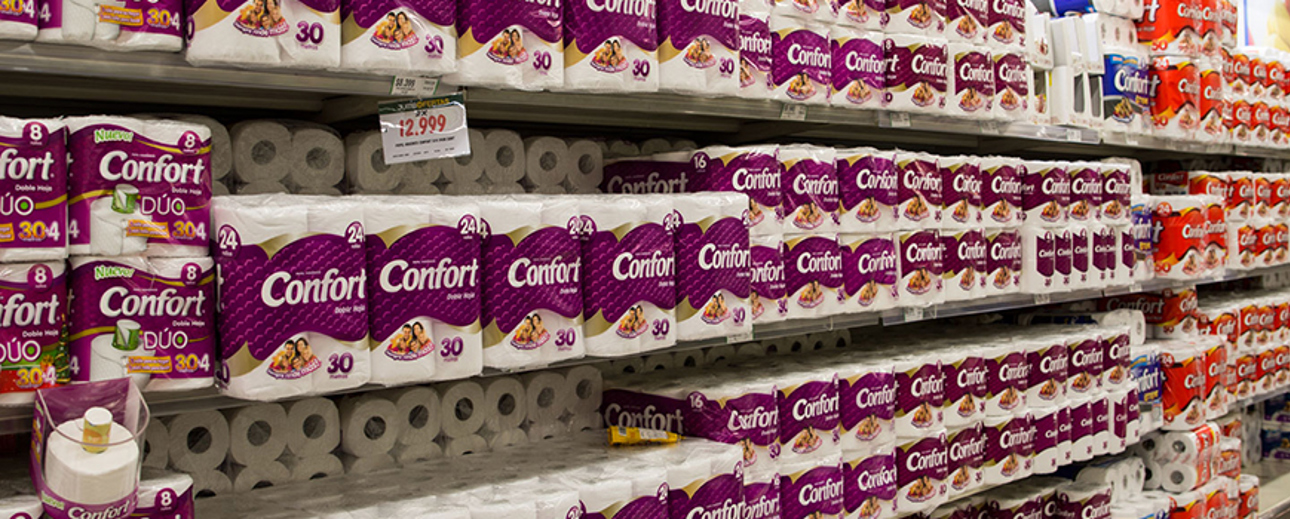Meeting the challenge of private labels
Oct 29, 2019
Private labels, also called store brands, retailer brands or own labels, were once considered cheaper, poorer alternatives to manufacturer brand products. Those days are long gone. With more consumers turning to private labels, national tissue brands need to boost innovation to stay competitive.

For some time, the global market share for private labels has been significantly stronger in tissue than for many other categories of fast-moving consumer goods. For manufacturers, this trend can be a great opportunity, a great threat or both, depending on the strategy you choose.
This article focuses on one approach for meeting the challenge of private labels: competing with them outright by strengthening your brand. If you would like to learn more about this topic, keep an eye out for the next article in this series.
Growing competition
There is no doubt that consumer perceptions of private labels have shifted dramatically over the course of the last 30 years. While it was not long ago that many associated store brands with low quality, today the situation is quite different. Globally, 65% of people agree with the statement that “private labels are a good alternative to name brands,” and a clear majority of consumers believe choosing a store brand represents a smart purchase decision.
As noted, this trend has been particularly stark in the tissue market. While the average private label share for consumer-packaged goods is around 14% worldwide, that number for tissue products can be as high as 35%.
Of course, the situation that you face as a manufacturer depends in large part on the specific market or markets in which you operate. Today the private label share remains comparatively low in emerging markets like China, while it is somewhat higher in the United States and dramatically larger in the European Union – particularly in Western Europe. In countries like Germany and the Netherlands, for example, private labels now dominate the bathroom tissue markets.
Innovating to the top
Competing in this tough market means being able to strengthen the proposition of your brand. Despite private label growth, the idea that “you get what you pay for” remains relevant around the world. While the strength of this belief may vary between regions, if consumers believe that national brands provide higher quality or an improved experience compared to store brands, they will be willing to pay a premium price.
It is therefore essential that consumers first have a positive view of your brand, and then see your brand as offering something unique. Advertising and distinctive packaging can of course play a big role in this process. But these types of marketing efforts have much greater impact when combined with a third, more critical factor: innovation.
Investing in R&D allows national brand manufacturers to introduce advancements for improved softness, strength, absorbability and so forth. Private label manufacturers, who operate on razor-thin margins, are unable to offer consumers similar innovations. Furthermore, studies have shown that advertising is most effective when tied to a new customer benefit, helping you associate your brand with exactly the qualities your target groups are seeking.
Mitigating the risks of innovation
While innovation can offer new opportunities for national tissue brands, competing with private labels still entails a degree of risk. For example, R&D and marketing campaigns can be expensive. New product benefits can also fail to live up to consumer expectations, weakening the potential for increased brand loyalty.
However, manufacturers have some options for mitigating these risks. Your choice of tissue machine is the first step. With the right technology, trying new product concepts can be made simpler and more cost-efficient.
A best-case scenario would be to work with a supplier who can offer access to full-scale pilot machines that perfectly mirror the circumstances of your mill. This lets you easily test everything from new chemicals and fibers to experimental manufacturing methods without having to pause your production. With the right supplier, you can also expect the support of skilled operators who understand how to safely push a tissue machine to its limits, enabling you to see what’s truly possible in the innovation process.
Learn more about the private label tissue market! Contact us with questions or look ahead to our next article in this series.
Find this story interesting? You can read more about tissue at www.tissuestory.com. If you want to know more about how Valmet helps its customers become best in tissue, go here to get information about our products and services.
Category: Tissue in focus
Industry level: Intermediate
Est. read time: 4 minutes
Summary: Part one in a two-part series, this article looks at meeting the challenge of private label tissue products (store brands) by competing with them outright.